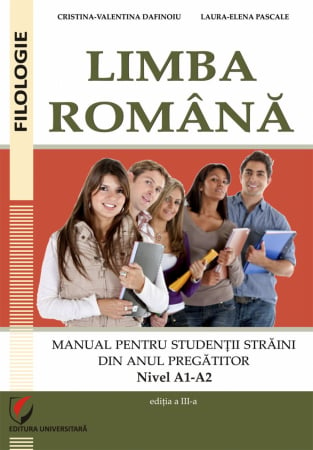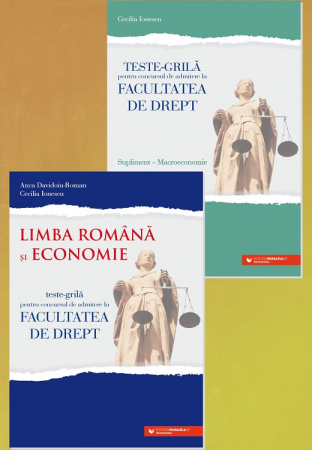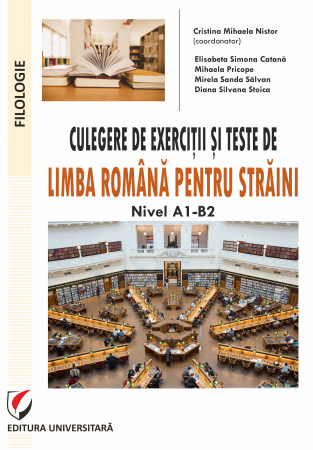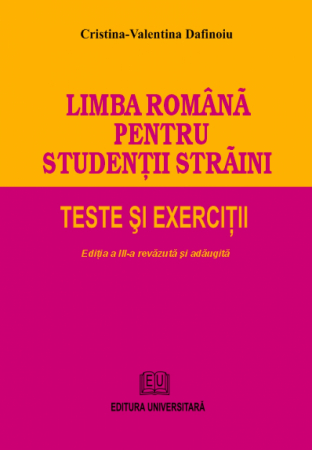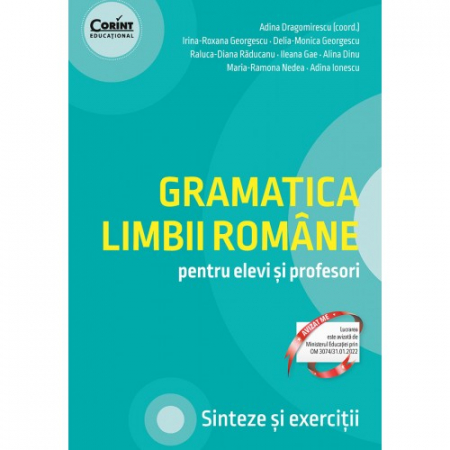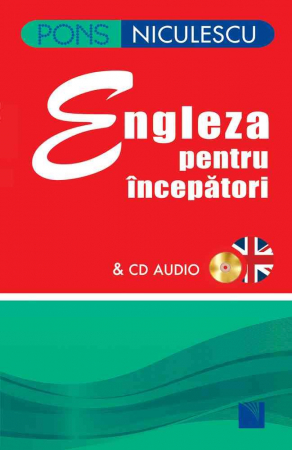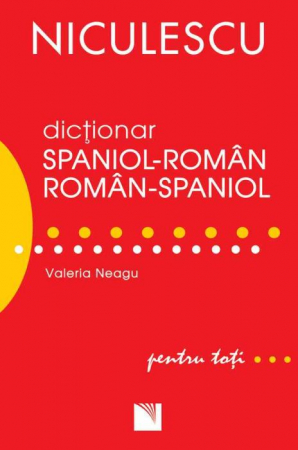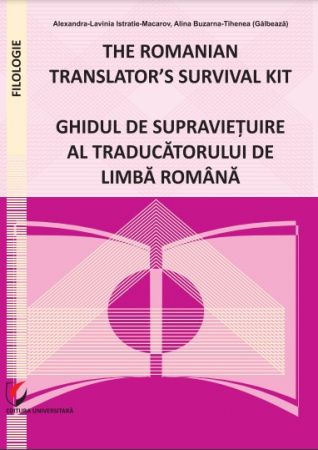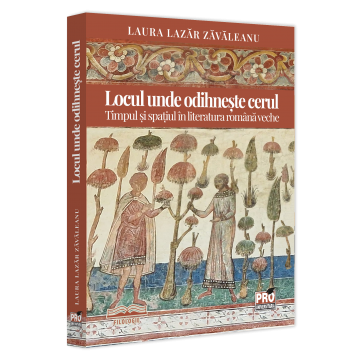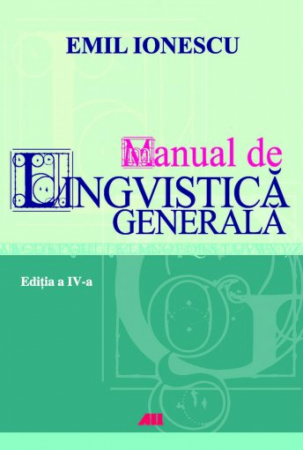ISBN: 978-973-749-985-1
Publisher year: 2010
Edition: I
Pages: 252
Publisher: Editura Universitară
Author: Alina Magdalena Jercan-Preda
- Description
- Download (1)
- Authors
- Reviews (0)
The first merit of the book Alina Magdalena Jercan - Preda is to redeem a lexical corpus proper, rational and convincing criteria selected so that the analysis not to repeat similar steps, on the one hand, and to prove their usefulness on the other part. Of the thousands of words that make up the Romanian geographical vocabulary, choose only the author of 1500, representing the fundamental terms of geographical sciences, appellants textbooks in school education, those who would be part, ideally, the active vocabulary (in some cases, even the passive vocabulary) of any Romanian-speaking, graduate of secondary education. Thus, research aimed at a representative of users of specialized language common virtuality, ie with various structures always able to pass the standard literary language, and even everyday speech. On the other hand, the results of research efforts that complement ago more than two decades by linguists, psychologists, educators, that Ion Coteanu, Mioara Avram, Tatiana-Slam Cazacu, concerned about the invasion of specialized terms in modern textbooks.
Analyzing the origins of such terms in the Romanian geography, with all its subdivisions - economic geography, human geography, geology, mineralogy, meteorology, etc.. - Studied as such in general education, the author presents and their time of entering the Romanian language, social-economic and cultural context, the degree of assimilation and use the standard literary language, and hence, implicitly, facility or, conversely the difficulty properties of terms by young Romanian-speaking student.
From the other perspective, purely linguistic (if we can talk about language "pure" in a study lexicology and semantics, terminology, in particular), selected corpus proves again its good inspiration. The author gives an overview of the etymological layers reflected in Romanian geographical terminology and no etymological analysis itself, which would not have been possible lexical material so rich and diverse. Small comments devoted to details of etymological reconstruction are due differences found between the solutions offered by the Romanian language dictionaries on the origin of words.
The author knows well the etymological classification criteria, but is confined to invoke only when it is well known word in question from attending the geographical texts. Thus, in some cases, it opts for a solution or another of the proposed dictionaries in use, depending on chronological grounds, that the first mention in Romanian, as far as believing that managed to go through first hand the geography texts translated into Romanian and study the literature, lists of words extracted, and other documents lexicology and lexicography era established (see references in the text due to some scholars that Amphilochios Hotiniul, Gh, Aaron V., I. Genil AND . a.). Otherwise, the author has the decency to keep away from discussions that require specialized training and a workload far beyond the level required to prepare a work like the present.
In general, the Source etymological analysis of the first section of the actual geographical vocabulary seems to have exclusive purpose of providing for comparison to the 775 words analyzed in the second largest section of the paper, devoted to those of French origin. This time is much more thorough study, the mechanisms designed for French-Romanian language contact, which had a strong impact on the formation of highly geographical terminology in the general context of modernization of the Romanian language enrichment and literature.
This paper details the specific manifestations of the three ways of influencing language: loan, translation and linguistic computing, with emphasis on the first and the last of them.
From careful reading specialist bibliography in language contacts, the traductologiei etc., Author formed his own vision and their analysis constitutes a grid adapted to lexical corpus studied. Thus, Alina Preda again manages to keep a stable balance between what has already been said (because of French-Romanian relations has been much talk in the literature) and what would still be discovered.
By applying various methods of lexical analysis defined material, this study is able to confirm the conclusions reached by other thematic areas of research Romanian vocabulary, but also to bring news of detail in assessing the significance noteworthy phenomenon discussion.
Thus, it appears that Romanian geographical terms due, in some way, French is 51.66% of all selected here, standing at a great distance from any other source external (and internal) training vocabulary of specialized in this field, which confirms the situation in other areas of science and social and economic activity, political, administrative, etc.. Of these, however, direct loans "actual" as often called the sentence, is only 298 lexical units, which means, as the author shows, 38.40% of all French influences.
This path has acted mainly linguistic transfer at the beginning and the end of the setup process of the Romanian geographical language, to the extent that we can talk about "completion" in the evolution of specialized terminology. Obviously, the author considers the general framework of the establishment of specialized vocabulary, which continues to change and, especially, to get rich today, according to the new acquisitions of science and evolution of human thought. However, viewed from the perspective of diachronic, they are fundamental data provided by the terminology of this field research, part of what we call "Earth Sciences".
Between these two periods, worked solid all calculation linguistic mechanisms responsible for 362 lexical units of the total inventory in terms of work, which represents 46.70% of words and phraseological structures of French origin. It confirms, in this way, concrete data, extracted from a lexical area which is pretty good so specialized terminology and common vocabulary that calculation linguistic phenomenon has an impact far greater than was thought in the evolution of various compartments of literary Romanian. Based on earlier research of Theodor Hristea, supplemented by more recent studies devoted to issues of detail about computing languages such as work-Istrate Mary Stanciu, the author exemplifies by terms, some of whom are also part of common vocabulary, linguistic complexity calculation action in French-Romanian relations. Diachronic perspective, it appears that he has acted mainly in the middle period of the history of geographical terminology training, and between the years 1870-1940. The action was fast and efficient quantitative and qualitative terms those dominating the Romanian geographical vocabulary. Today, in this area begin to notice the effects of global influence of English. But in time, even the terms of English origin, entered the Romanian German French intermediaries (cf., for example, cargo and freighter). About translation, the linguistic process, they speak less work because it is less visible than the other two pathways in the formation of geographical terminology and the translation (literal, first, the less free) account is interwoven with language , in many of the forms of its manifestation. Through such detail analysis, the author creates, therefore, complex and accurate picture of the role of French in building specialized Romanian vocabulary.
From observations of detail, note the role of French as sole vehicle through transfer and assimilation of terms of various origins. I gave the example above English-French-Romanian relations. The paper shows that there are some terms that were created in the languages spoken in areas where the notion, that designated geographic reality of those words, is specific: for example, igloo, is an Eskimo word for it signifies a local reality. Such terms fall in circulation worldwide, part of the international terminology, more or less standardized, with the necessary adaptations in each language fonomorfologice beneficiary. Alina work Jercan Magdalena - Sermons proves that when those terms do not comply strictly graphic form of language of origin but adapted to the specifics of the Indo-European languages, for example, they were assimilated into Romanian by French intermediaries, as is evident phonetic features and morphological, falling into the French-Romanian general correspondence. It's words like: burg, cirrus, hairdryer, guano, isthmus, jet, jungle, loess, Pampas, gutter, savannah, tsunami, tundra, etc. UED
On this aspect, the first part of the paper noted an interesting paragraph about Romanian terminology related to the notion of "projection", "top", "height", very rich and many local elements, which reflect the specific morphology of crust the Romanian area.
Under all these aspects, the content of the paper is interesting, well balanced between light and morpho-lexical semantics between diachronic and synchronic, between description mechanisms internal works and various forms of borrowing, as above-mentioned breakdown of mixed sources, in the calculation language.
In the form, content carefully analyzed with a corresponding clear compositional structure, easy to follow, supported by a clear expression in a sober style, based on a good command of language and geographical metalanguage alike. In fact, the entire work is the fruit of the passion and seriousness with which the author addresses two areas where he specialized in academic studies - geography and French.
Given all these qualities, interdisciplinary research proposed in the pages of this book offers a reading as instructive as it is enjoyable.
Prof. univ. dr. P. Gh. Bârlea
-
Locul limbii franceze în structura etimologică a lexicului geografic românesc
Download

6359.png)
![French place in the structure of Romanian etymological geographical vocabulary [1] French place in the structure of Romanian etymological geographical vocabulary [1]](https://gomagcdn.ro/domains/editurauniversitara.ro/files/product/large/locul-limbii-franceze-n-structura-etimologic-a-lexicului-geografic-romnesc-2204-410654.jpg)
